5 Idiomatic expressions with appétit
May 06, 2025We can all say “Bon appétit !” in French, but did you know that it‘s generally only accepted amongst friends?
At a table in high society, you do not say this.
It’s considered bad manners, like saying “tuck in!” for the works of culinary art before you!
The more time I spend with French people and learning about the nitty gritty of cultural etiquette, the more I feel integrated and ready to learn more.
So, today I share 5 idiomatic expressions related to your appetite, ranging from rather coarse or just plain familiar to a more refined way of expressing your enthusiasm to eat together:
Today, you will discover:
- 5 increasingly refined idiomatic expressions related to your appetite
- How to use these expressions and not trip up socially
- How to remember the ones you want to learn
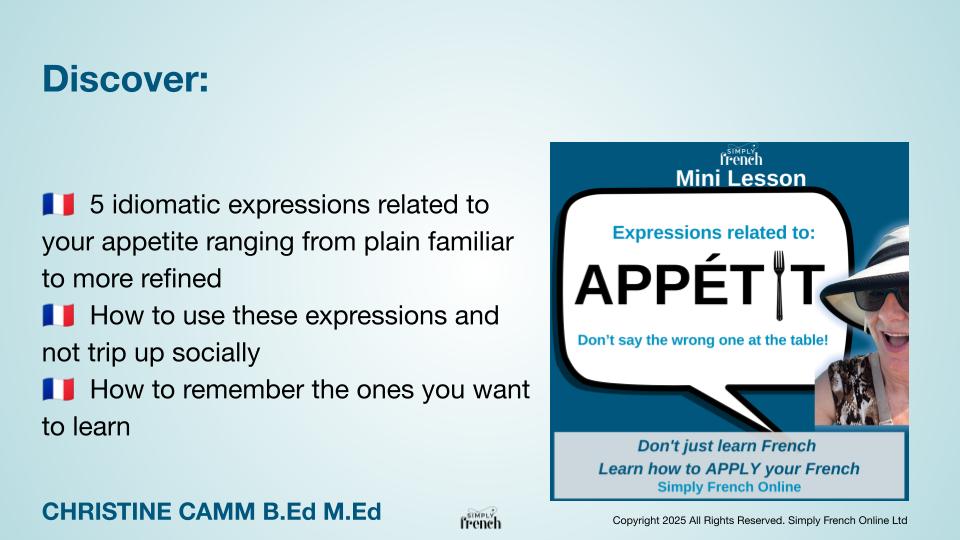
Five contextual examples with French expressions related to the word appetite.
You will have fun with these French expressions as long as you apply them correctly.
Here’s the list of the 5 idioms:
- Avoir un appétit de loup / d’ogre
- L’appétit vient en mangeant
- Rester sur son appétit
- Avoir l’eau à la bouche
- Faire l’honneur à
Time to study them one by one. Let’s start with this:
- Avoir un appétit de loup / d’ogre >>> to be famished.
Here’s an example for you:
- Après une journée de randonnée, j’avais un appétit de loup et j’ai mangé tout le plat. >>> After a day of hiking, I was starving and ate the entire dish.
This expression can also be applied to a more abstract context like in this example:
- Depuis qu’il a commencé à lire ce roman, il a un appétit de loup pour la littérature. >>> Since he started reading that novel, he has an insatiable appetite for literature.
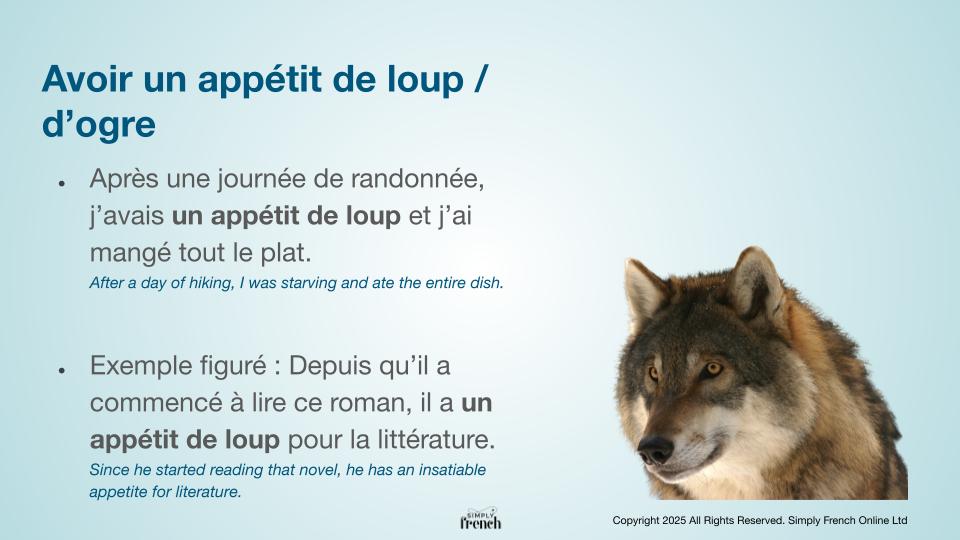
The following one refers to getting hungry:
- L’appétit vient en mangeant. >>> Appetite grows with eating.
You could use it like this:
- Au début, il hésitait à apprendre le piano, mais il a vite adoré. L’appétit vient en mangeant ! >>> At first, he was reluctant to learn piano, but he quickly loved it. Appetite grows with eating!
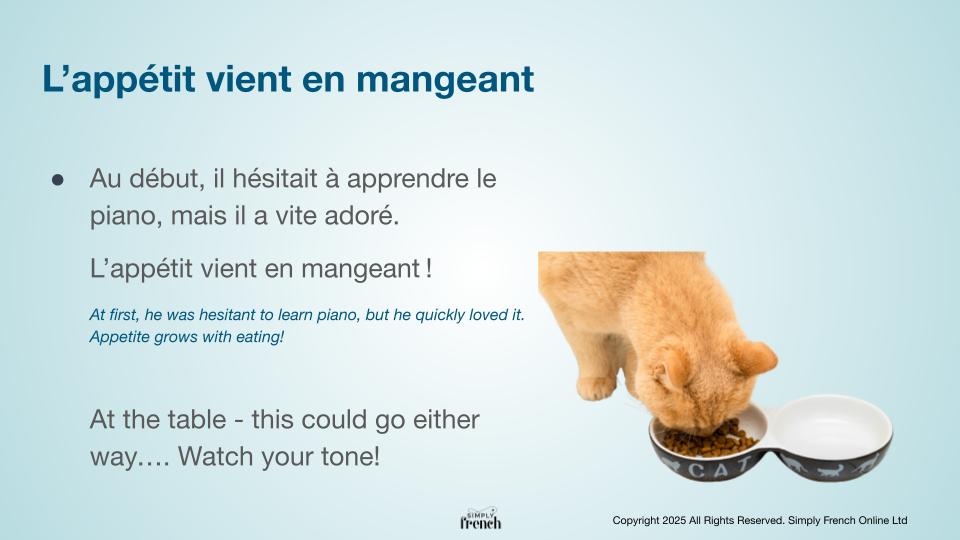
The next one expresses the opposite.
- Rester sur son appétit >>> to be left wanting more.
Here’s an illustration:
- Ce dessert était si petit que je suis resté sur mon appétit. >>> This dessert was so small that I was left wanting more.
Once more, you can use it as a metaphor:
- Ce film était prmoetteur, mais la fin m’a laissé sur mon appétit. >>> This movie was promising, but the ending left me unsatisfied.
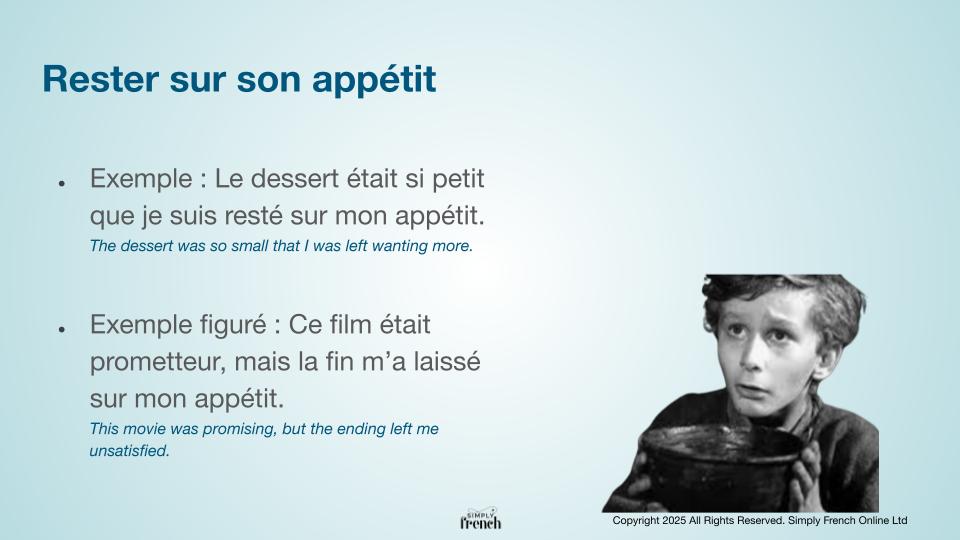
The next one is closer to the English translation:
- Avoir l’eau à la bouche >>> to make your mouth water.
Here’s an example for you:
- En sentant l’odeur du pain frais, j’avais déjà l’eau à la bouche. >>> Smelling the fresh bread, my mouth was already watering.
Feel free to use it for a more abstract context:
- En voyant l’invitation à manger, j’ai l’eau à la bouche. >>> Seeing the invitation to eat makes me eager to accept.
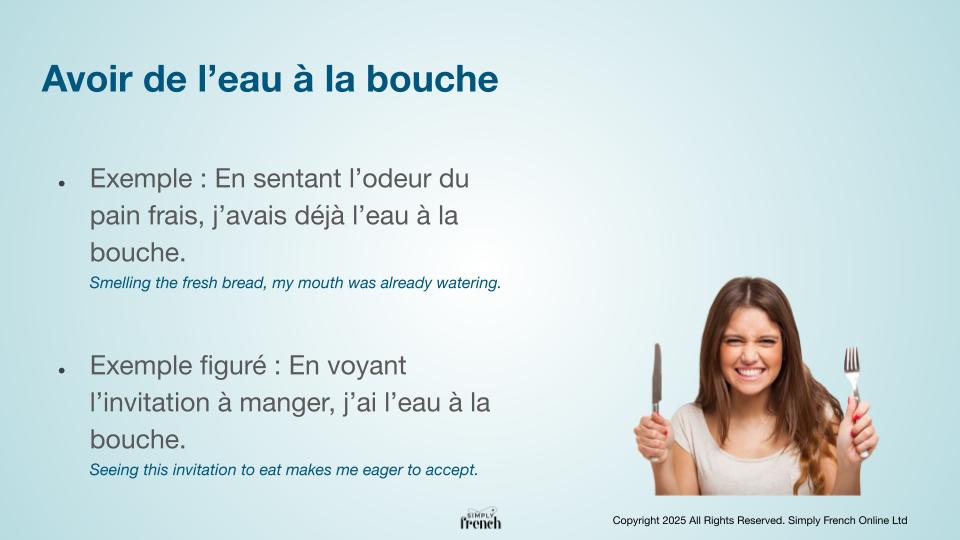
Finally, this expression to express your pride:
- Faire l’honneur à >>> to do justice to.
The French expression is very similar to the English one:
- Ce vin fait vraiment honneur à la réputation de ce vignoble. >>> This wine truly does justice to the reputation of this vineyard.
As usual, you can apply it to a broader idea:
- Ce vin fait vraiment honneur à votre goût. >>> This wine truly does justice to your taste.
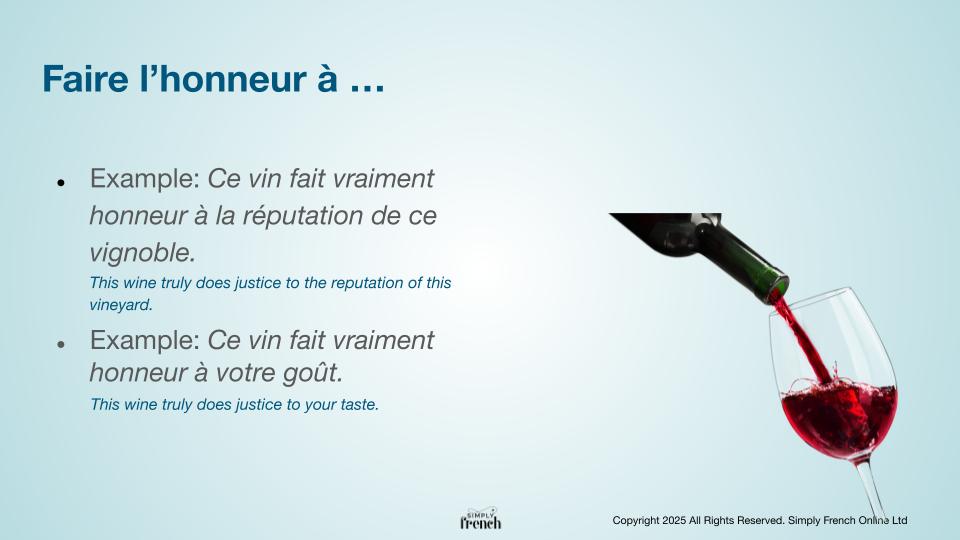
Tips to learn the idiomatic expressions in French.
To start with, choose one thing at a time and master it. Once you do, you can add more to your list.
Then, say it aloud to memorise it.
The word is not enough. Indeed, if you put it into context with your own example it will facilitate.
Then, you want to practise as much as possible or you will forget it.
In a nutshell, there is no need to learn a lot. You would better apply your learning in order to speak French simultaneously with confidence.
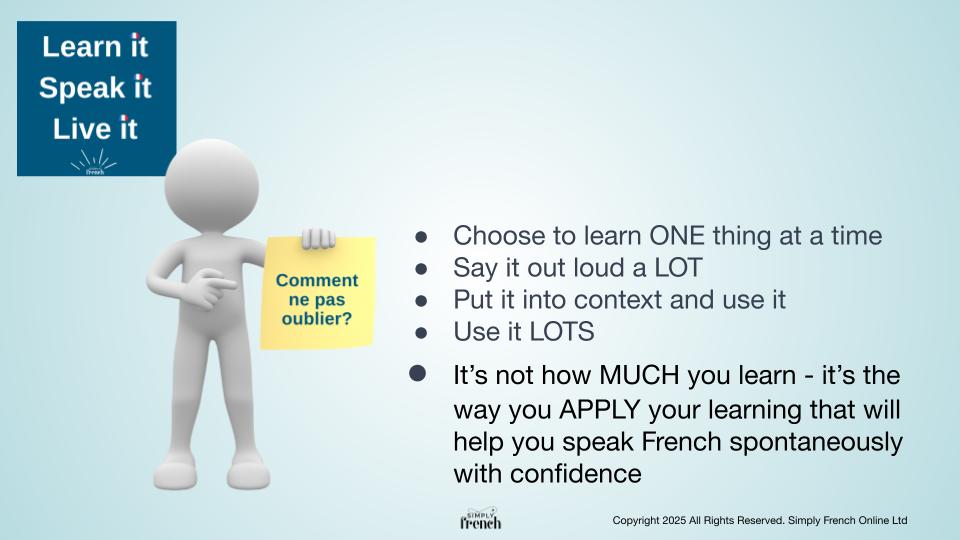
In this mini-lesson, you have seen four idiomatic expressions related to the word appetite:
- L’appétit vient en mangeant. >>> Appetite grows with eating.
- Rester sur son appétit >>> to be left wanting more.
- L’appétit vient en mangeant. >>> Appetite grows with eating.
- Avoir l’eau à la bouche >>> to make your mouth water.
- Faire l’honneur à >>> to do justice to.
I have other mini-lessons about French expressions for you:
4 easy cat expressions to sound French
5 Great Idiomatic Environment Expressions in French
What are your favourite French idiomatic expressions?
Free Masterclass
Learn my 4 step method of how to hold meaningful french conversations the R.E.A.L. way in just 30 minutes a day.
When you signup, we'll be sending you weekly emails with additional free content

